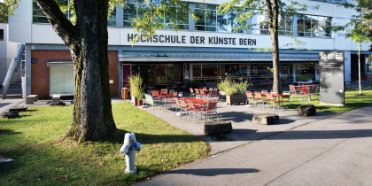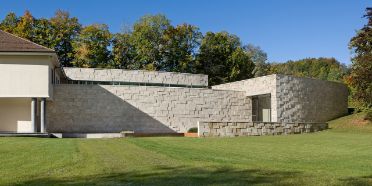Financial aid is available through grants and loans. Grants are one-off or ongoing payments that don’t usually have to be paid back provided you complete your course. Loans are one-off or ongoing payments that must be paid back after you finish your course. There are also numerous private foundations and funds that offer financial support to students. The electronic foundation directory administered by the Federal Department of Home Affairs offers a comprehensive summary of these organisations and can be searched by keywords (e.g. student, research, financial aid, etc.).
HKB scholarship fund
Many HKB students live in precarious financial circumstances. The opportunities to earn money while undertaking demanding and time-consuming studies are limited. And the cost of living in Switzerland is one of the highest in all of Europe. A doctor’s bill, a healthy diet, and paying the rent or semester and examination fees can become pressing problems. To help in such cases, the HKB scholarship fund provides targeted support by covering the tuition fees from CHF 750 up to CHF 950.
Eligibility criteria for Music and Theatre
The main criterion for receiving a scholarship is an evident and well-justified financial need. Transparen-cy is required to show that the necessary income cannot be (sufficiently) generated – whether through support from parents, work, scholarships, competitions, etc. In addition, the information provided must be complete and truthful. If these criteria are met, we can consider your application.
If we receive too many applications, decisions will be made based on the degree of financial need.
Budget Templates
Please first refer to the following guidelines regarding living expenses. If you have any questions, please contact the relevant advising offices (Music: Hannes Liechti, EMail: hannes.liechti@hkb.bfh.ch; Theatre: Secretariat, EMail: theater@hkb.bfh.ch).
Make sure you allow enough time and submit your application as early as possible, so we can review it for completeness and, if necessary, contact you in a timely manner.
Application for support
To apply for support, you need to take the following steps:
- Fill out the online application form in full and print it out
- Send the application online
- Submit the printed form to the secretariat for your degree programme
The deadline for applications for a semester fee waiver is 15 May to 15 June (for the following autumn semester), or 15 November to 15 December (for the following spring semester).
Applications for a waiver of the semester fees will only be considered and included in the selection process once the course offer has been.
Application form
Other grants
State grants
The Excellence Scholarships by the Federal Commission for Scholarships for Foreign Students (FCS) are intended for foreign artists who have completed their Bachelor’s degree. ATTENTION: Applications must be submitted one year before the start of the studies. The scholarship program is released in August. Applicants who have been living in Switzerland for more than one year at the beginning of the scholarship in September are not eligible.
In addition, the Swiss National Science Foundation (SNSF) promotes young scientists and basic research in all scientific disciplines on behalf of the Swiss Confederation.
Cantonal grants
Grants and loans for Swiss students and overseas students are generally paid out by the canton where the students’ parents are tax residents. Students who have been tax residents in the Canton of Bern for at least two years are able to apply for cantonal grants and loans. Applications should be submitted to the Financial Aid Office at the Department of Education.
Other grants
Further information
The websites Berufsberatung.ch, ch.ch, EDK – Stipendien, stipendium.ch and European Funding Guide cover all the key information about grants in Switzerland and overseas.
Support through cultural promotion
Your contact persons for questions about scholarships and loans



